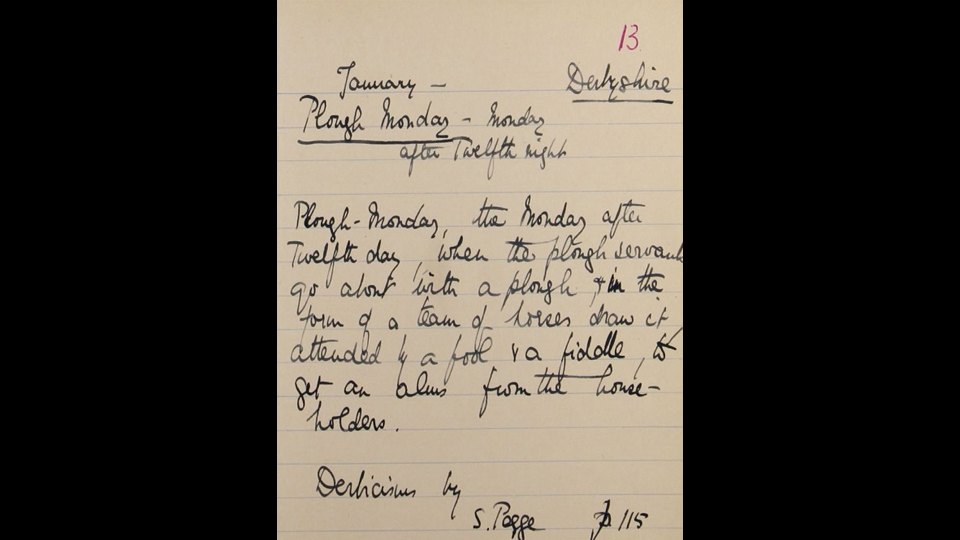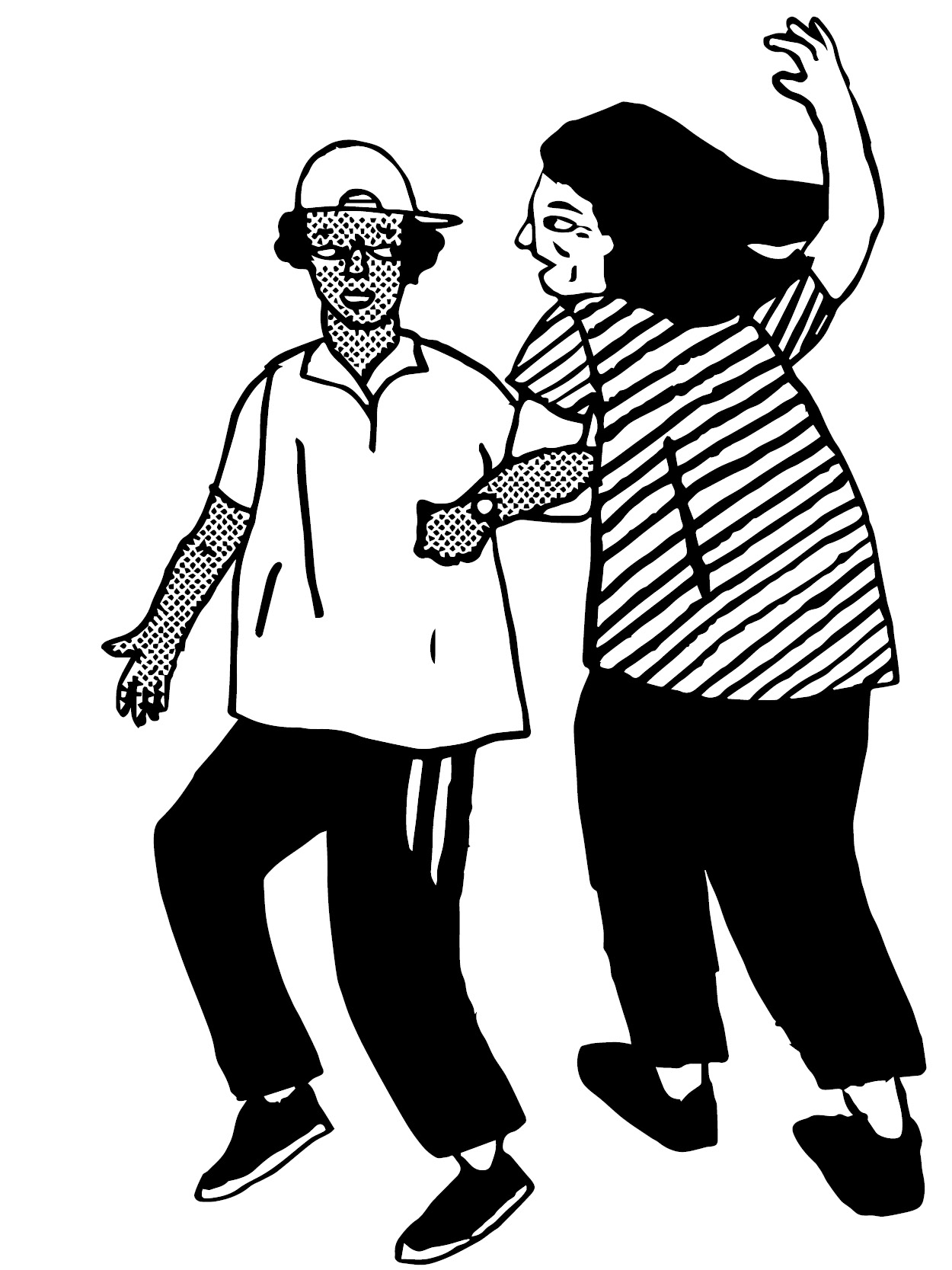Plough Monday
Plough Monday
“God spede the Plough and send us ale corne anow, our purpose for to make..”
(inscription in church at Cawston, Norfolk)
Delaying tactics. That was probably one of the reasons for the raucous celebrations which happened in some regions on the Monday following Twelfth Night or 6th January. This is Plough Monday and records of it go back to the beginning of the 15th century. It marked the end of the Christmas holidays for agricultural workers and a return to the land. But just how much work was actually done on this day is another matter . . .
For Plough Monday was the day when village life in many agricultural areas focused on the dragging of a decorated plough, sometimes a real one but often just a replica, around a community by bands of young men who would knock on doors and ask for money, food or drink. These men were variously known as Plough Stotts (Yorkshire and the North East), Plough Bullocks, Plough Jags or Jacks (Leicestershire, Nottinghamshire and Lincolnshire) or Witches (Cambridgeshire and Huntingdonshire) and they often wore very fanciful costumes adorned with ribbons, jewellery or any sort of ornament available, including horse brasses. One would often be dressed as a woman (the ‘Betty’) who would carry the collecting box, while others may have blackened their faces to disguise themselves. There may even have been some sword dancers, molly dancers or mummers performing plough plays in some places.
In medieval times it was common for ploughs to be blessed by the church on Plough Sunday and for money to be collected for the Plough Light, a flame that would be kept burning throughout the year to bring good luck to the ploughmen and farm labourers. The Reformation did away with most of these symbolic practices, but blessing continued in a few places and still occurred in the 1990s in Exeter Cathedral in Devon, Cottered in Hertfordshire, Cawston in Norfolk, Chichester Cathedral in Sussex, and Goathland, Knaresborough and Long Marston in Yorkshire.
The bounty collected from these perambulations was shared out by the individuals concerned, probably to supplement meagre wages or, if the weather was bad, sometimes none at all. This economic factor might just have been the reason for the continuance and popularity of the custom throughout the centuries. Today, any monies accrued tend to be distributed to local charities - and even commercial sponsorship is accepted.
Plough Monday Play
In style, the performance of a Plough Play was similar to that of the Christmas Mummers’ Play. It was originally performed by young men and included some of the same story elements, such as the death and resurrection of one of the characters. However, that is where the similarity ends. Although existing texts vary considerably and border on the surreal at times, this play is basically about a strange courtship (which is why it is often called a Wooing Play) and the interference of a Recruiting Sergeant.
A farm labourer courts a ‘lady’ but is rejected and persuaded by the Recruiting Sergeant to enlist in the army. The ‘lady’ then accepts the advances of a Clown or Fool and they agree to marry. An older ‘dame’ arrives on the scene and accuses the Clown of being the father of her illegitimate baby, which he denies, and the two characters fight until one, usually the ‘dame’, is killed or wounded and then revived by a quack doctor.
The play would often include a song (in fact, in some cases much of the play would be sung) and in a few places the ‘actors’ would join the dancers, who followed them around during the day, and alternate their performances, maybe even incorporating the dance into the play. There was also, of course, a plough in attendance and should a household not be forthcoming with alms, it could well find some unwelcome furrows across its front garden.
You can download a sample text of a Plough Monday play from the PDF link on this page.
This page is part of our Beginners’ Guide: British Folk Customs From Plough Monday to Hocktide.
You might also be interested in looking at the Beginners' Guide to English Folk Drama.











